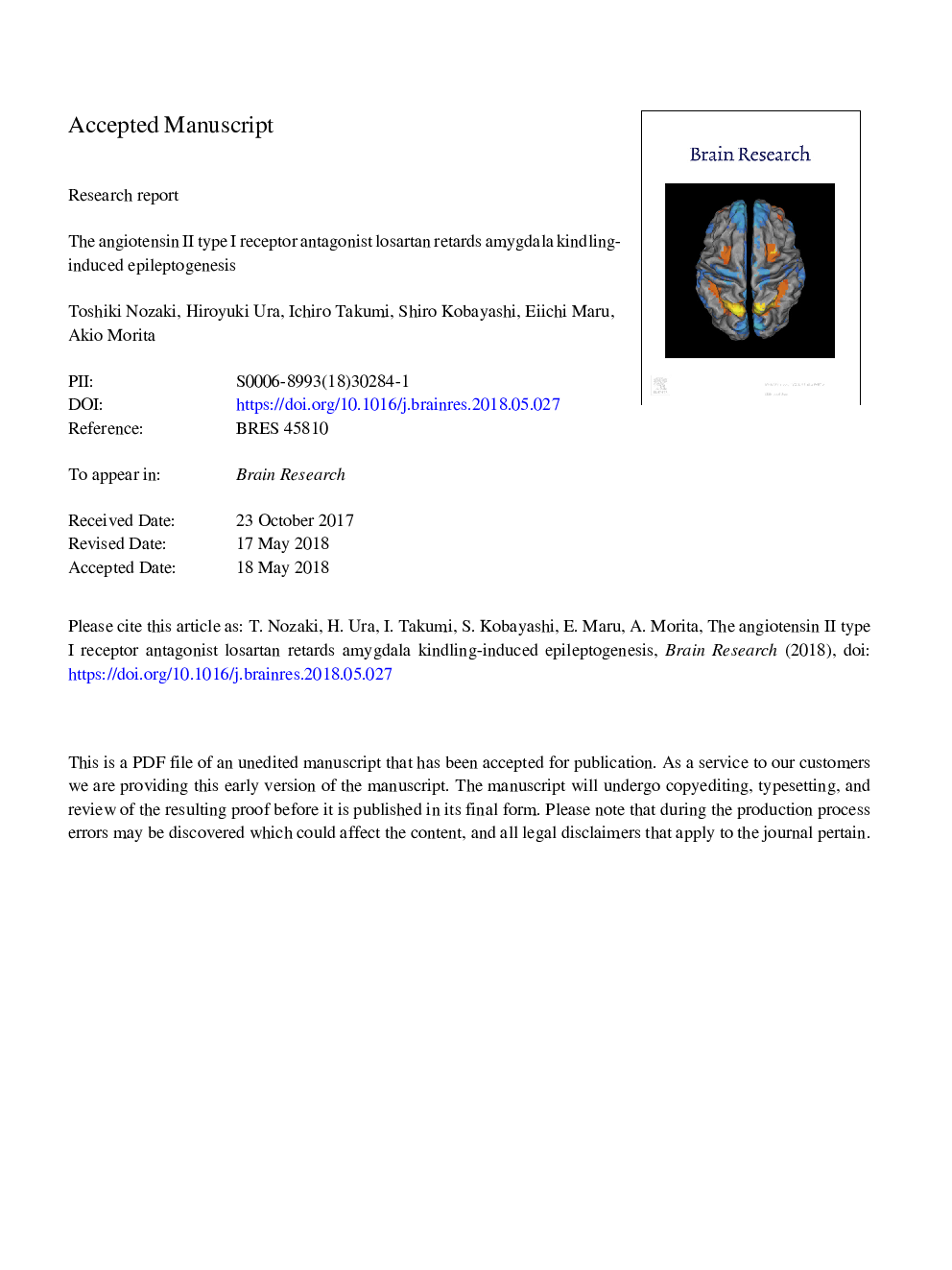| Article ID | Journal | Published Year | Pages | File Type |
|---|---|---|---|---|
| 8839711 | Brain Research | 2018 | 48 Pages |
Abstract
Blood-brain barrier (BBB) breakdown and the subsequent exposure of the cerebral cortex to serum albumin are known to activate transforming growth factor β (TGF-β) signaling in astrocytes and to play key roles in epileptogenesis after brain injury. It was recently reported that the angiotensin II type I receptor antagonist losartan suppresses activation of TGF-β signaling and prevents epileptogenesis in a rat vascular injury model. Here, we investigated the effects of losartan on epileptogenesis following amygdala kindling in rats. Systemic or intracerebroventricular (i.c.v.) administration of losartan significantly delayed the development of severe behavioral seizures and stimulus-induced seizures on EEG (afterdischarge) in the early stage of amygdala kindling, as assessed by electroencephalography. Losartan also significantly increased the number of stimulations required to reach the fully kindled state. However, losartan had no effects on the threshold for afterdischarge induction, the afterdischarge duration, or seizure severity in fully kindled rats. Evaluation of BBB permeability by Evans blue staining did not indicate BBB breakdown (extravasation of serum albumin) in any region of the brain in the fully kindled animals. Thus, losartan may be useful in preventing epileptogenesis, even in post brain-insult epilepsy, in the absence of BBB breakdown.
Keywords
i.p.TGF-βAT1i.c.v.intracerebroventricularECMADTTGF-β signalingAmygdala kindlingangiotensin II type 1 receptorgamma-aminobutyric acidElectroencephalographyafterdischarge thresholdtransforming growth factor-βanalysis of varianceANOVAintraperitonealBBBlosartanExtracellular matrixBlood-brain barrierEEGParvalbuminGABA
Related Topics
Life Sciences
Neuroscience
Neuroscience (General)
Authors
Toshiki Nozaki, Hiroyuki Ura, Ichiro Takumi, Shiro Kobayashi, Eiichi Maru, Akio Morita,
